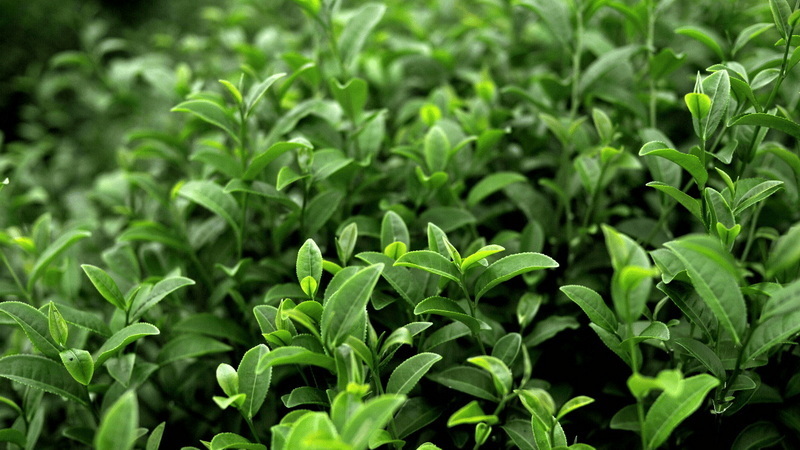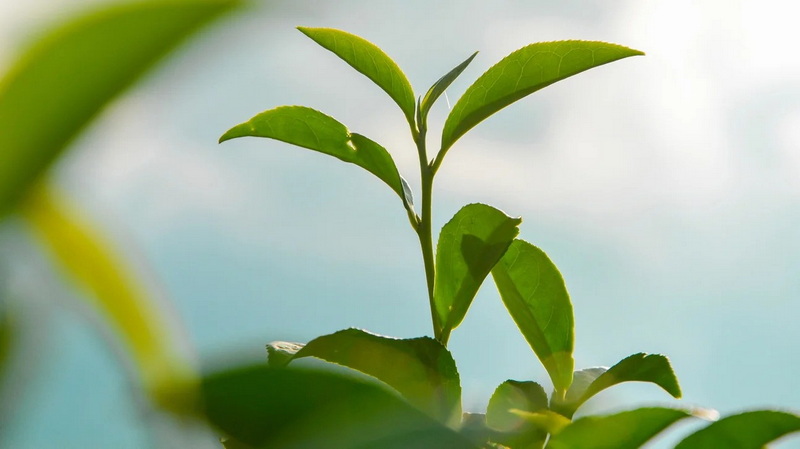Content Menu
● The Science Behind Green Tea Extract
>> Catechins and EGCG
>> Caffeine Content
● Potential Weight Loss Mechanisms
● Research Findings on Green Tea Extract and Weight Loss
>> Positive Findings
>> Mixed or Inconclusive Results
● Dosage and Consumption
● Potential Benefits Beyond Weight Loss
● Safety Considerations and Side Effects
● Incorporating Green Tea Extract into Your Weight Loss Plan
● Conclusion
● FAQ
>> 1. How much green tea extract should I take for weight loss?
>> 2. Can green tea extract interact with medications?
>> 3. Are there any side effects of taking green tea extract?
>> 4. How long does it take to see weight loss results from green tea extract?
>> 5. Can I get the same benefits from drinking green tea instead of taking extract?
● Citations:
Green tea extract has gained significant attention in recent years as a potential aid for weight loss. This article will explore the scientific evidence behind green tea extract's effectiveness in promoting weight loss, its potential benefits, and considerations for those looking to incorporate it into their weight management routine.

The Science Behind Green Tea Extract
Green tea extract is derived from the leaves of the Camellia sinensis plant, which is also used to make various types of tea. It contains several bioactive compounds, including catechins and caffeine, which are believed to contribute to its potential weight loss effects[1].
Catechins and EGCG
The primary catechin in green tea extract is epigallocatechin gallate (EGCG), a powerful antioxidant that has been the subject of numerous studies. EGCG is thought to boost metabolism and increase fat oxidation, potentially leading to weight loss[1][5].
Caffeine Content
Green tea extract also contains caffeine, albeit in smaller amounts compared to coffee. Caffeine is known to stimulate the nervous system and may contribute to increased energy expenditure and fat oxidation[1][5].
Potential Weight Loss Mechanisms
Green tea extract may support weight loss through several mechanisms:
1. Increased Metabolism: Some studies suggest that green tea extract can boost metabolism, leading to a higher calorie burn throughout the day[5].
2. Enhanced Fat Oxidation: Green tea extract may help the body break down fat more efficiently, particularly during exercise[3][5].
3. Appetite Suppression: While evidence is mixed, some research indicates that green tea extract might help reduce appetite, potentially leading to lower calorie intake[5].
4. Thermogenesis: The combination of catechins and caffeine in green tea extract may increase thermogenesis, the process by which the body produces heat and burns calories[1].
Research Findings on Green Tea Extract and Weight Loss
Several studies have investigated the effects of green tea extract on weight loss, with mixed results:
Positive Findings
- A systematic review and meta-analysis of nearly 60 studies involving over 3,800 participants found that green tea extract significantly reduces body fat percentage and increases antioxidant capacity[3].
- One study showed that men who took green tea extract before exercise burned 17% more fat than those who didn't take the supplement[5].
Mixed or Inconclusive Results
- An eight-week study determined that tea catechins increased fat burning during both exercise and rest[5].
- However, a well-designed study with 60 Caucasian adults found no significant effect on resting energy expenditure or body composition after 12 weeks of green tea extract supplementation[7].
It's important to note that while some studies show promising results, the overall effect of green tea extract on weight loss appears to be modest[5][8].

Dosage and Consumption
The optimal dosage of green tea extract for weight loss is not definitively established. However, based on available research:
- Studies often use doses ranging from 300-500 mg of green tea extract per day[3][7].
- Some researchers recommend aiming for a dosage of around 500 milligrams, standardized to 98% polyphenols and 45-50% EGCG, taken two to three times per day[3].
It's crucial to consult with a healthcare professional before starting any new supplement regimen, especially if you have pre-existing health conditions or are taking medications.
Potential Benefits Beyond Weight Loss
Green tea extract may offer additional health benefits beyond its potential effects on weight:
1. Antioxidant Properties: The high concentration of catechins in green tea extract provides powerful antioxidant effects, which may help protect cells from damage[1][5].
2. Heart Health: Some studies suggest that green tea extract may help improve cholesterol levels and reduce the risk of cardiovascular disease[2][5].
3. Blood Sugar Regulation: Green tea extract may help improve insulin sensitivity and reduce the risk of type 2 diabetes[1][7].
4. Liver Health: Research indicates that green tea extract may help reduce inflammation associated with certain liver diseases, such as nonalcoholic fatty liver disease (NAFLD)[7].
5. Skin Health: The antioxidant properties of green tea extract may contribute to improved skin health, potentially reducing acne and signs of aging[2].
Safety Considerations and Side Effects
While green tea extract is generally considered safe for most people, there are some potential side effects and safety considerations to keep in mind:
- Caffeine Sensitivity: Green tea extract contains caffeine, which may cause side effects such as jitters, anxiety, or sleep disturbances in sensitive individuals[2].
- Liver Concerns: High doses of green tea extract have been associated with liver damage in rare cases. It's essential to follow recommended dosages and consult with a healthcare provider[7].
- Interactions: Green tea extract may interact with certain medications, including blood thinners and some antibiotics. Always inform your healthcare provider about any supplements you're taking[5].
Incorporating Green Tea Extract into Your Weight Loss Plan
While green tea extract may offer some benefits for weight loss, it's important to remember that it's not a magic solution. To maximize its potential effects:
1. Combine with a Healthy Diet: Focus on a balanced, nutrient-rich diet that supports your weight loss goals.
2. Regular Exercise: Incorporate both cardio and strength training exercises into your routine.
3. Stay Hydrated: Drink plenty of water throughout the day.
4. Get Adequate Sleep: Aim for 7-9 hours of quality sleep each night.
5. Manage Stress: Practice stress-reduction techniques like meditation or yoga.
Conclusion
While green tea extract shows some promise as a weight loss aid, the evidence is mixed, and its effects appear to be modest at best. It may provide a small boost to metabolism and fat burning, particularly when combined with exercise, but it's not likely to produce significant weight loss on its own.
Green tea extract should be viewed as a potential supplement to a comprehensive weight loss plan that includes a healthy diet, regular exercise, and other lifestyle modifications. As with any supplement, it's crucial to consult with a healthcare professional before adding green tea extract to your regimen, especially if you have pre-existing health conditions or are taking medications.
Ultimately, sustainable weight loss is achieved through long-term lifestyle changes rather than relying solely on supplements. Green tea extract may offer some benefits, but it's not a substitute for a balanced diet and regular physical activity.

FAQ
1. How much green tea extract should I take for weight loss?
While optimal dosages vary, many studies use 300-500 mg of green tea extract daily. Some experts recommend 500 mg standardized to 98% polyphenols and 45-50% EGCG, taken 2-3 times per day. Always consult a healthcare professional for personalized advice.
2. Can green tea extract interact with medications?
Yes, green tea extract can interact with certain medications, including blood thinners and some antibiotics. It's crucial to inform your healthcare provider about all supplements you're taking to avoid potential interactions.
3. Are there any side effects of taking green tea extract?
Common side effects may include caffeine-related symptoms like jitters or sleep disturbances. In rare cases, high doses have been associated with liver damage. Follow recommended dosages and consult a healthcare provider if you experience any adverse effects.
4. How long does it take to see weight loss results from green tea extract?
Results can vary widely among individuals. Some studies show modest effects after 8-12 weeks of consistent use. However, significant weight loss is unlikely without also implementing dietary changes and regular exercise.
5. Can I get the same benefits from drinking green tea instead of taking extract?
While drinking green tea can provide health benefits, green tea extract is more concentrated. You would need to drink several cups of green tea to match the catechin content of a typical extract supplement. However, whole green tea may offer additional benefits from other compounds present in the leaves.
Citations:
[1] https://www.medicalnewstoday.com/articles/320540
[2] https://health.clevelandclinic.org/green-tea-extract-a-better-way-to-boost-energy-or-not
[3] https://www.youtube.com/watch?v=kmlcjBJ05Sk
[4] https://www.istockphoto.com/de/bot-wall?returnUrl=%2Fde%2Fphotos%2Fgreen-tea-extract
[5] https://www.healthline.com/nutrition/green-tea-and-weight-loss
[6] https://www.today.com/health/diet-fitness/green-tea-benefits-rcna141328
[7] https://www.healthline.com/nutrition/10-benefits-of-green-tea-extract
[8] https://pmc.ncbi.nlm.nih.gov/articles/PMC8406948/
[9] https://www.hollandandbarrett.com/the-health-hub/weight-management/weight-loss/can-you-drink-green-tea-for-weight-loss/






























